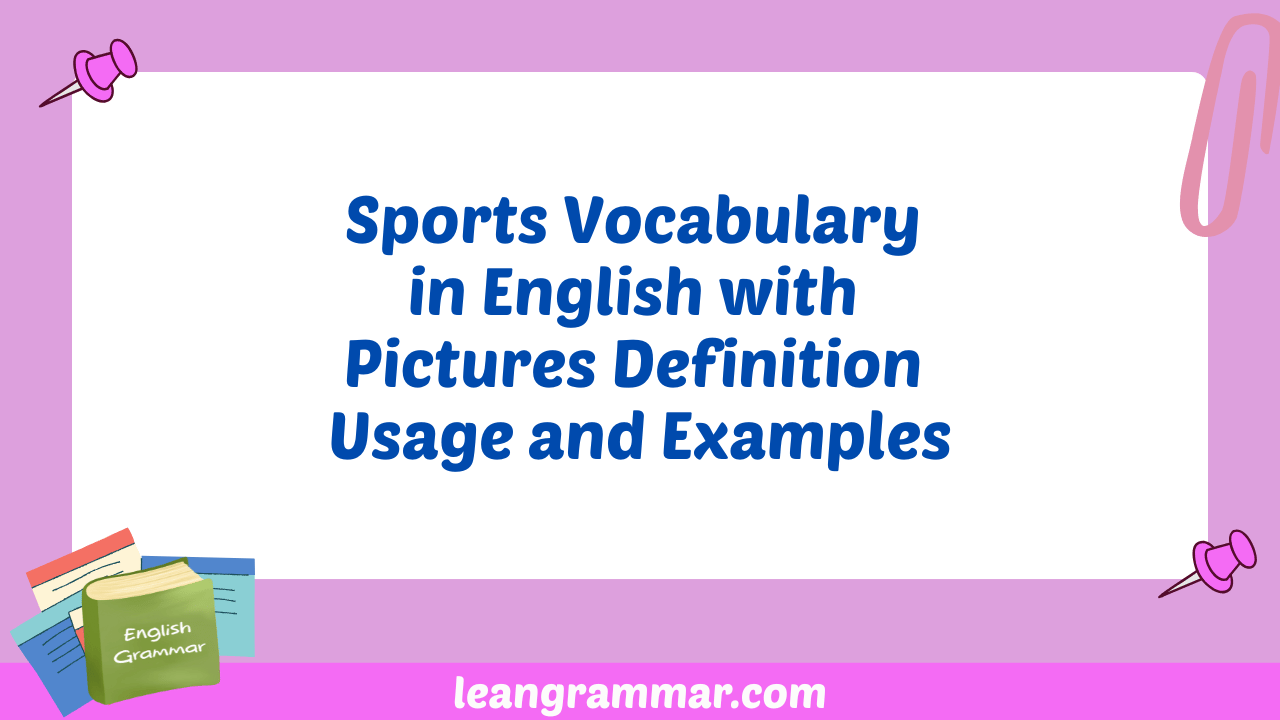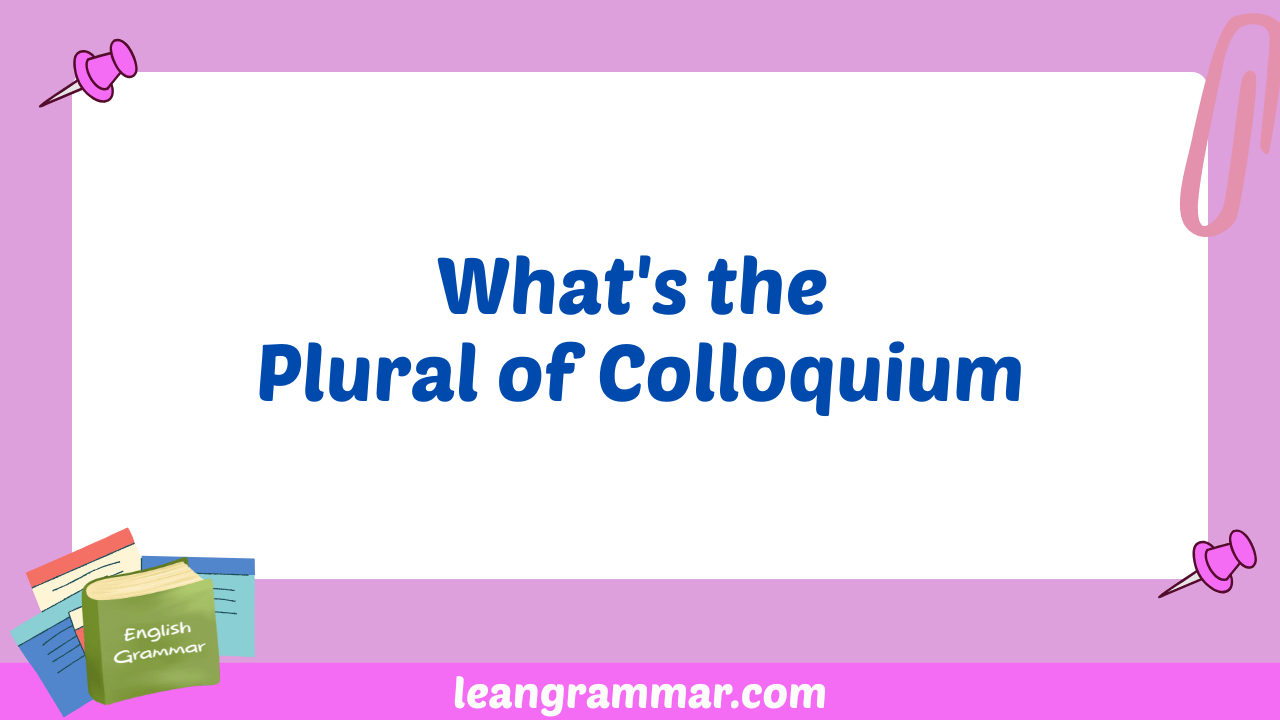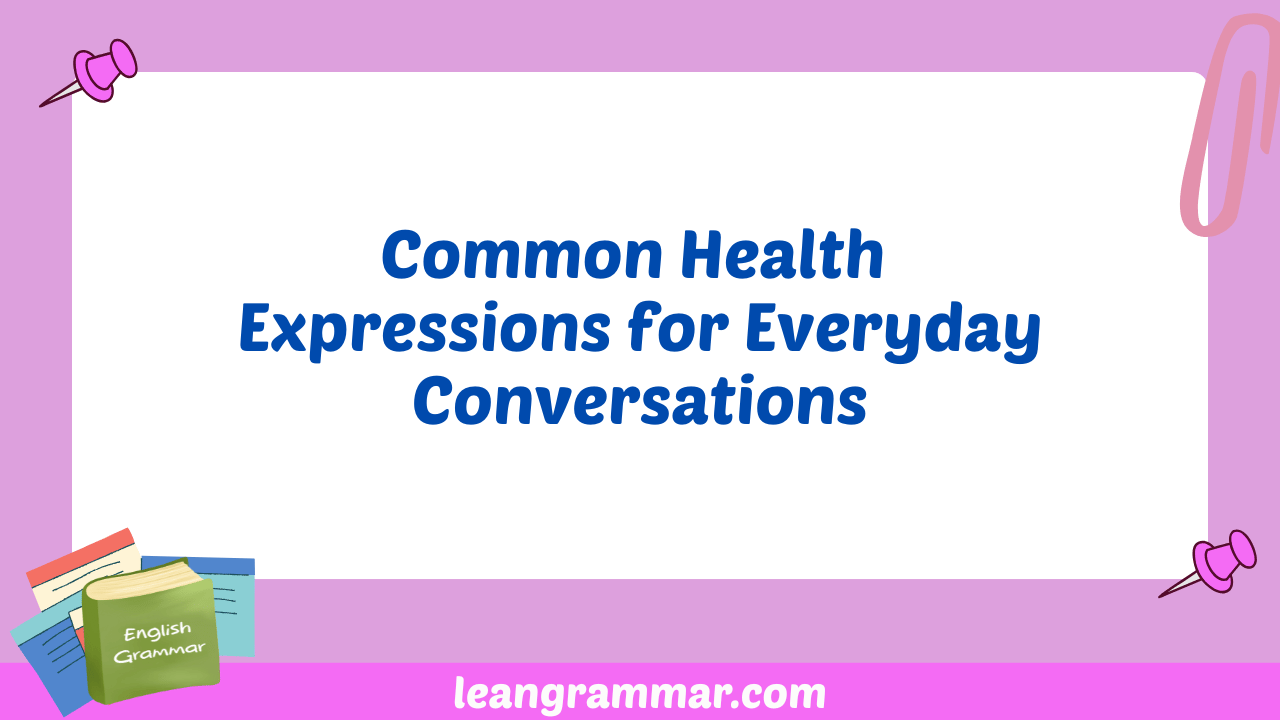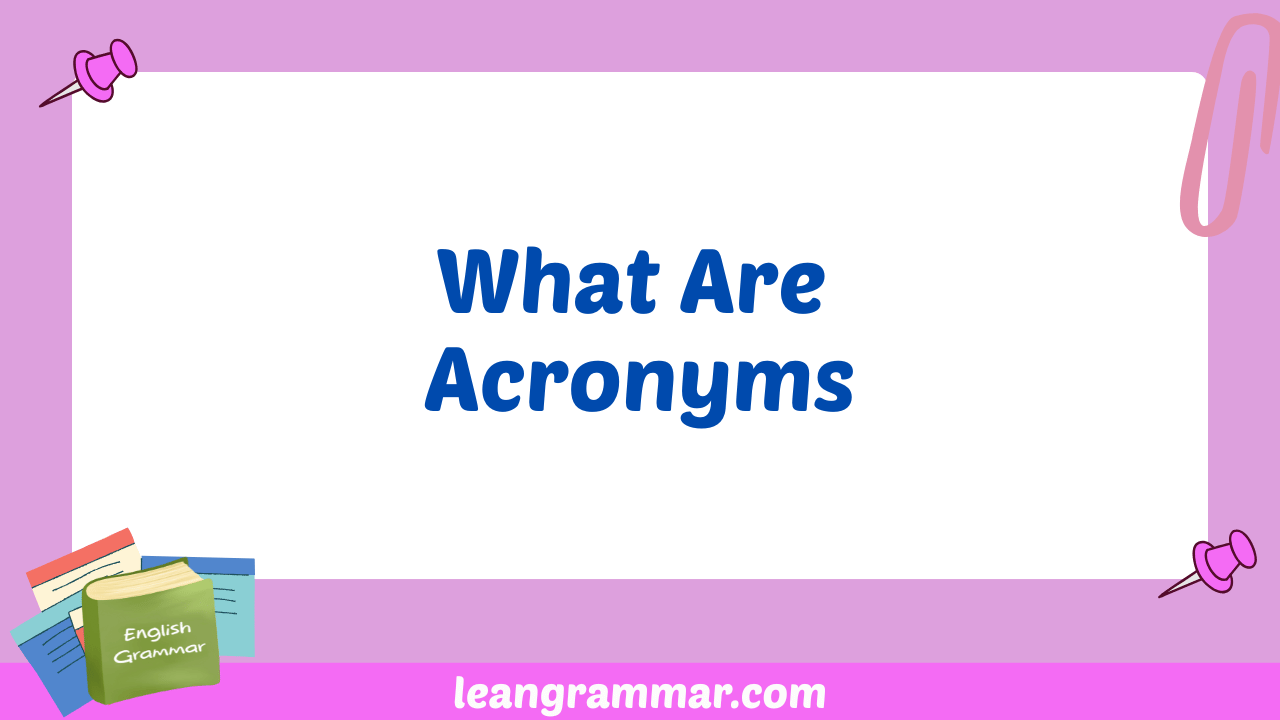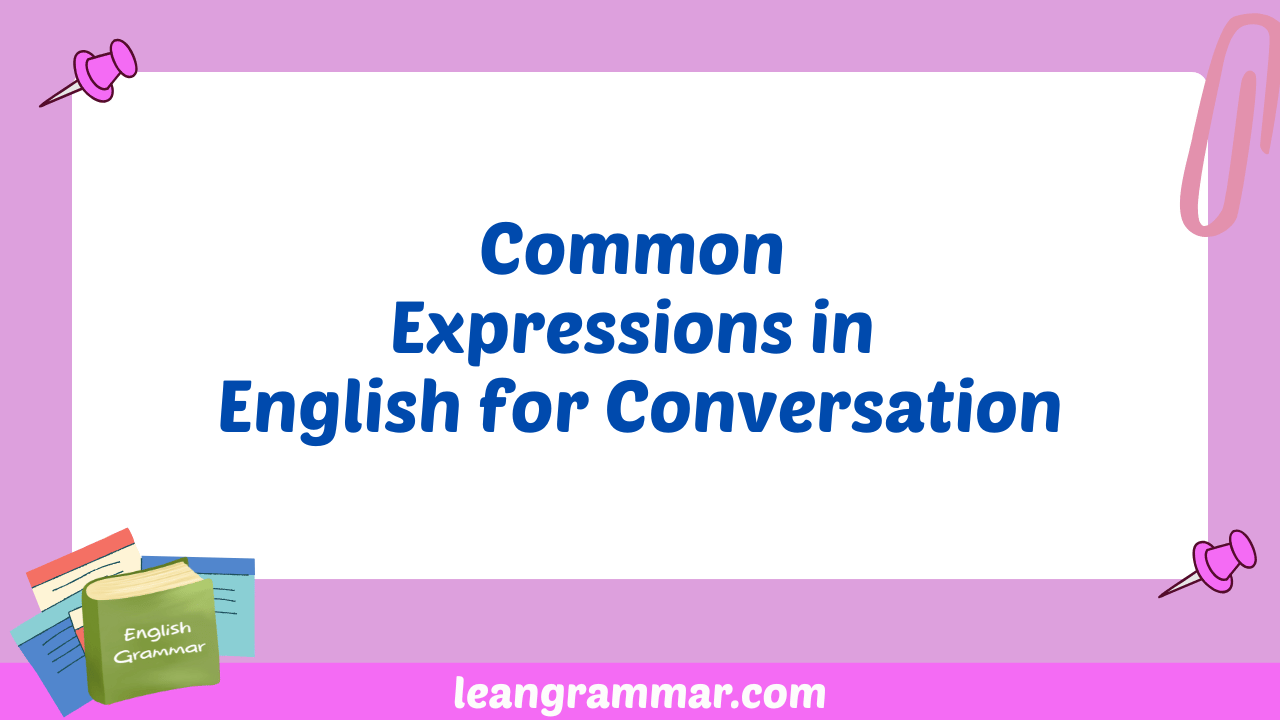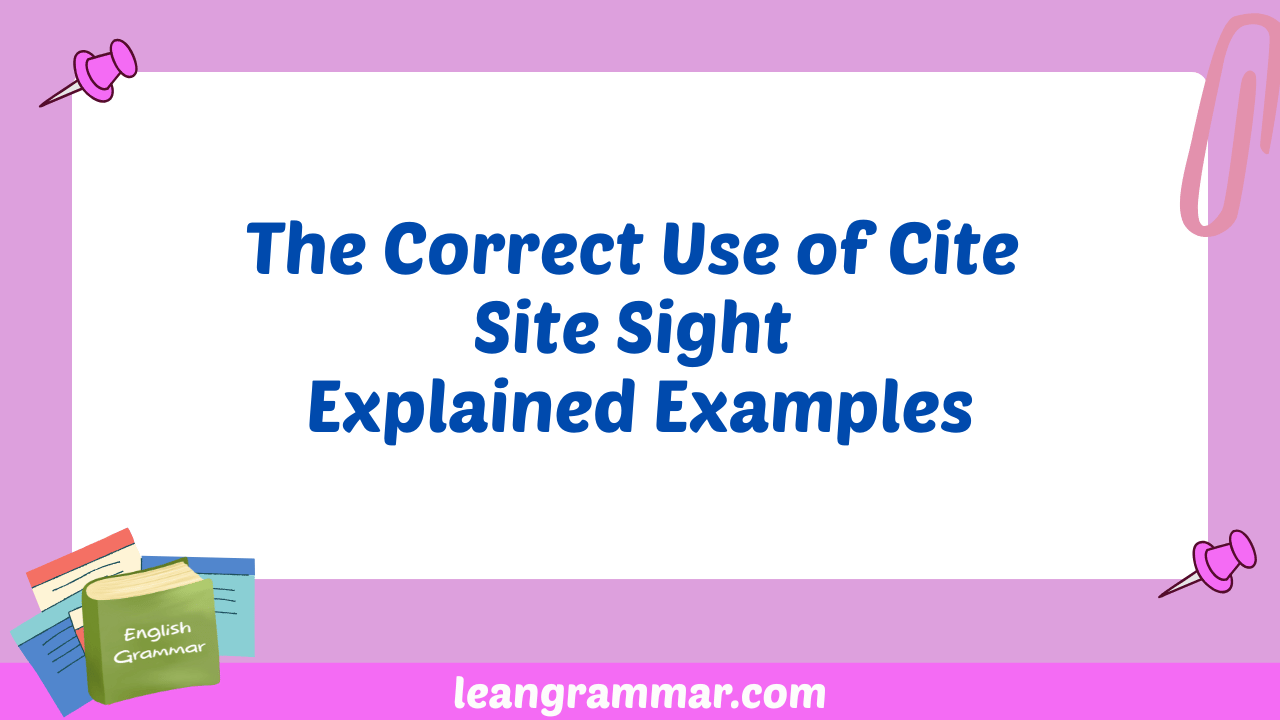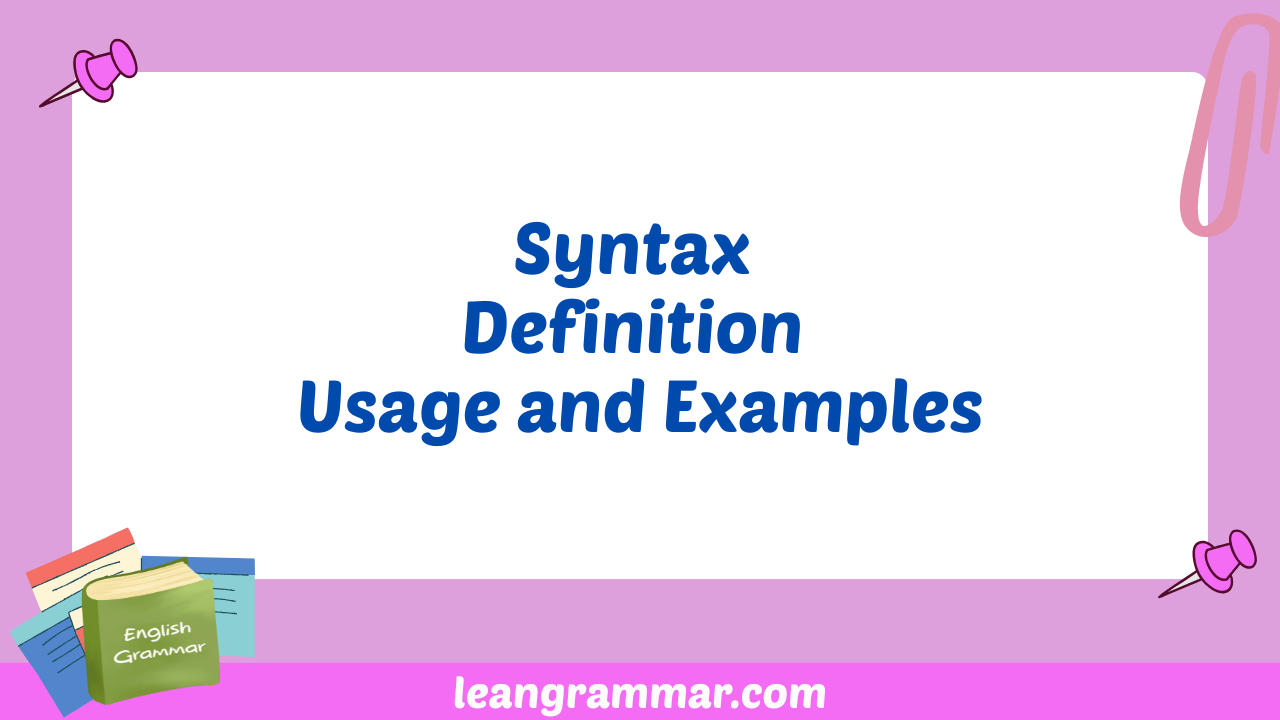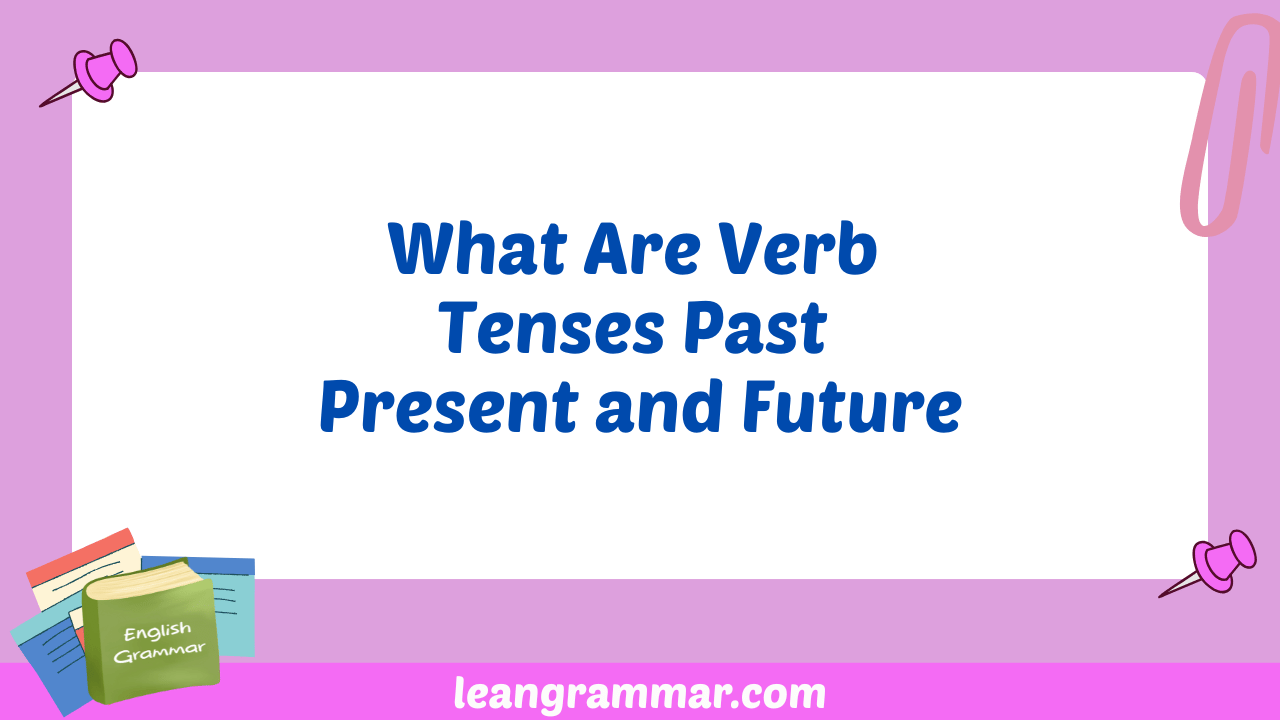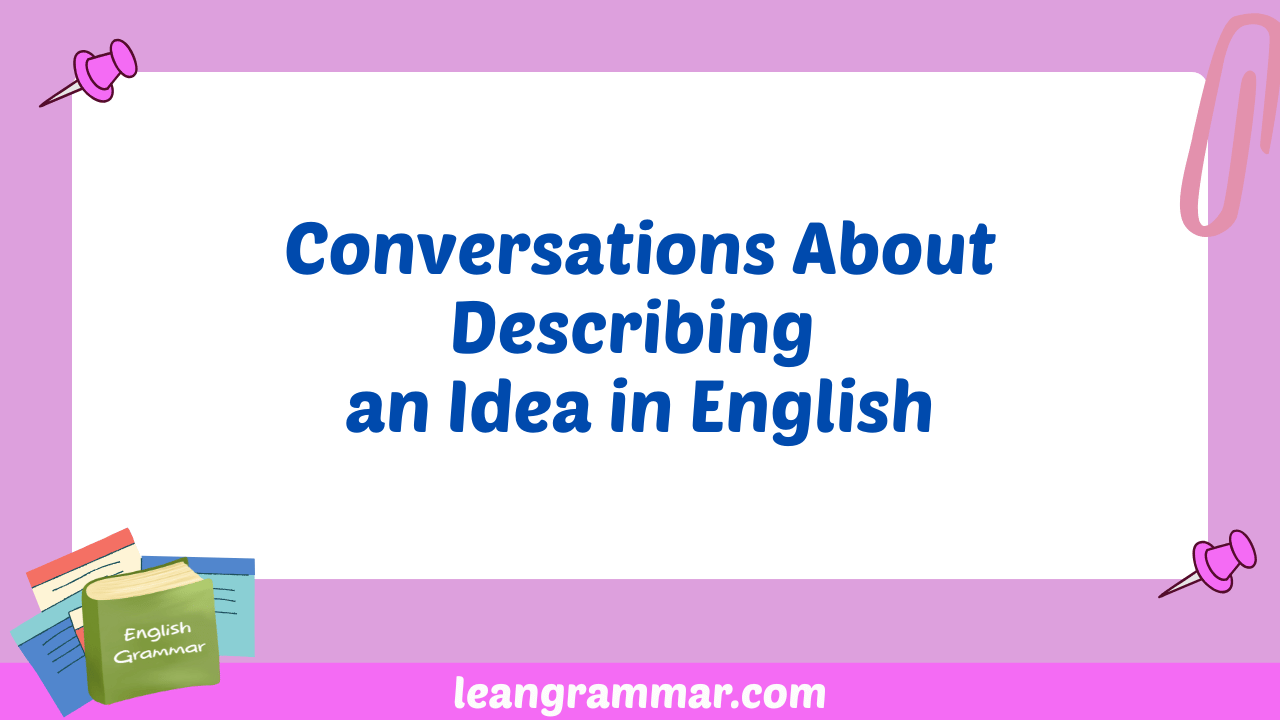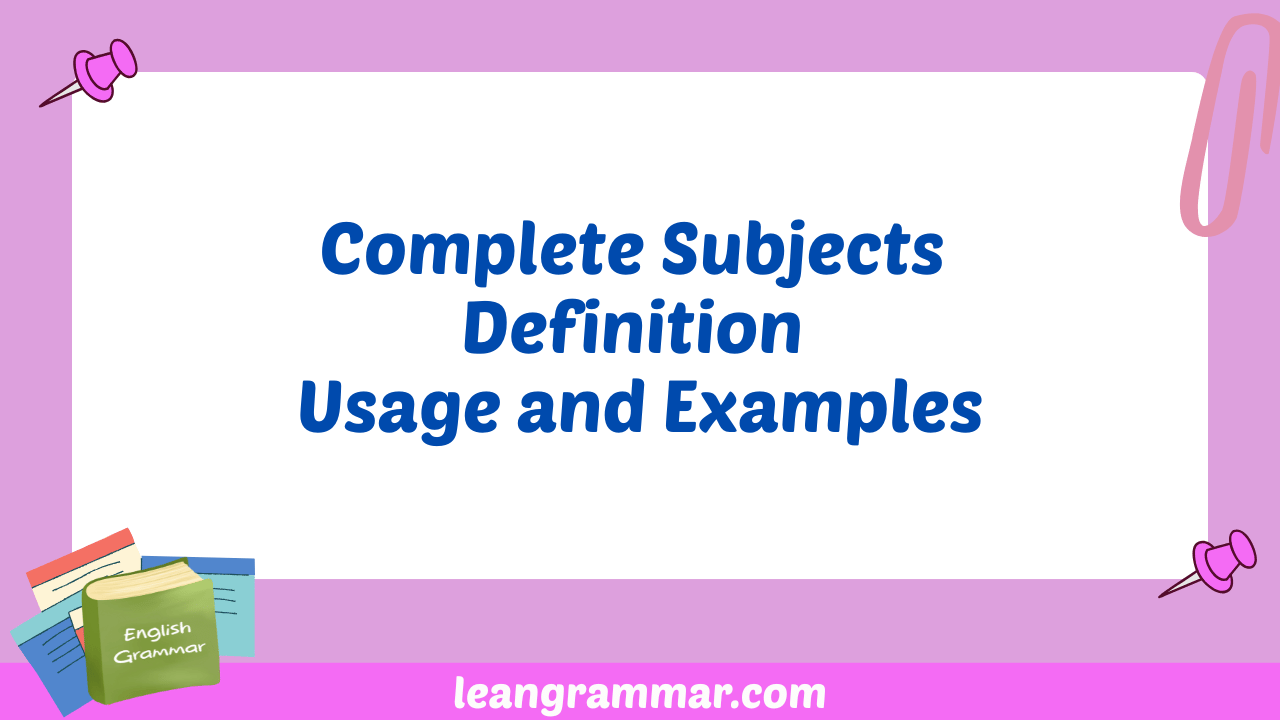Sports Vocabulary in English: Definitions, Usage, and Examples
Understanding sports vocabulary is essential for anyone looking to discuss, read about, or participate in sports-related activities in English. This comprehensive guide provides definitions, usage rules, and examples to help you master sports terminology. Whether you are a sports enthusiast, a student learning English, or a professional working in the sports industry, this article will … Read more
